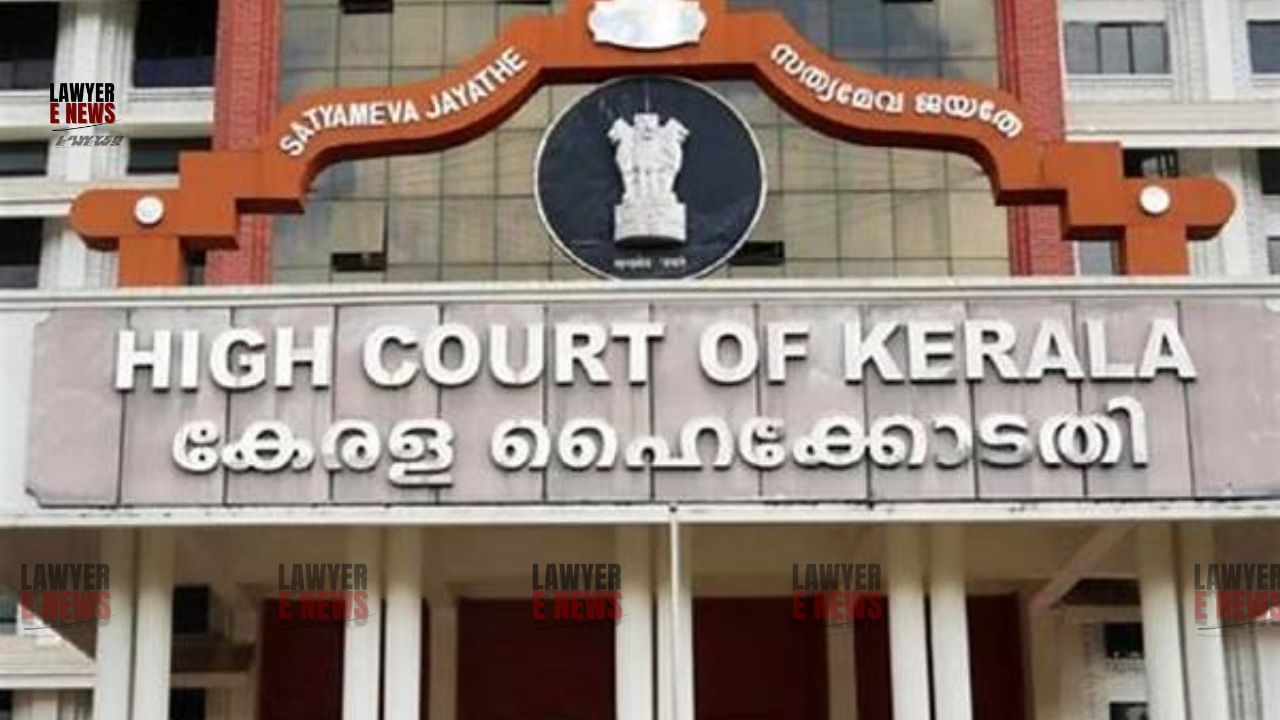-
by Admin
15 February 2026 5:01 PM



The Kerala High Court has dismissed an original petition in a property dispute case that has been pending for over three decades. The judgment, delivered by Justice Easwaran S., highlighted the petitioner’s repeated attempts to delay the proceedings through frivolous applications, misrepresentation, and suppression of facts. The Court imposed an exemplary cost of Rs. 25,000 on the petitioner, to be paid to the Legal Services Authority, emphasizing the need for stringent action against such tactics that obstruct the course of justice.
The original suit was filed in 1990 by the predecessor of the present plaintiffs seeking eviction and recovery of possession of a property, described as “B Schedule property,” based on title. Despite the initial decree in favor of the plaintiffs, the defendant’s appeals and subsequent legal maneuvers led to prolonged litigation. The case was remanded by the High Court in 2020 for fresh consideration on the identification of the disputed property based on an old survey number. The trial court’s efforts to move forward were continually obstructed by the petitioner through various interim applications, culminating in the current petition.
Justice Easwaran S. observed that the petitioner, who is the defendant in the original suit, had employed multiple tactics to delay the case, including filing a series of frivolous applications. The Court noted that these applications were designed not to resolve the actual dispute but to prolong the litigation unnecessarily. The petitioner’s behavior was described as “untenable and fallacious,” highlighting the lack of merit in the arguments presented.
The judgment was particularly critical of the petitioner for suppressing material facts from the Court, including the filing of an important interlocutory application (IA No. 7 of 2022) that sought to delay the property inspection by an Advocate Commissioner. The petitioner failed to disclose this application and the subsequent dismissal order in the present petition, leading the Court to conclude that there was a deliberate attempt to mislead.
In addressing the key issues raised by the petitioner, the Court meticulously examined the proceedings and records from the trial court. It was determined that the petitioner’s challenges to the authenticity of certain documents and the identification of the property were baseless. The Court emphasized that these issues were already addressed by the trial court, and the petitioner’s arguments were merely an extension of their delay tactics.
The Court also underscored the impropriety of challenging orders that had already attained finality, as the petition did not include all relevant parties, and the matters being contested were not even part of the original suit’s subject matter.
Justice Easwaran S. remarked, “There is a deliberate attempt on the part of the petitioner to mislead this Court. The absence of any challenge to the order dated 24-6-2022 in IA No. 7 of 2022 is certainly a point which should deter this Court from proceeding further in this Original Petition.”
The Kerala High Court’s dismissal of the petition sends a clear message about the judiciary’s intolerance for tactics that aim to subvert the legal process. By imposing costs on the petitioner and highlighting the importance of adhering to procedural integrity, the judgment reinforces the commitment to delivering timely and fair justice. The outcome of this case is expected to discourage similar frivolous litigation and contribute to the efficient resolution of long-pending cases.
SAJITHA ISMAIL VS T.S. SANTHAKUMARI & Ors
Date of Decision: August 23, 2024.
